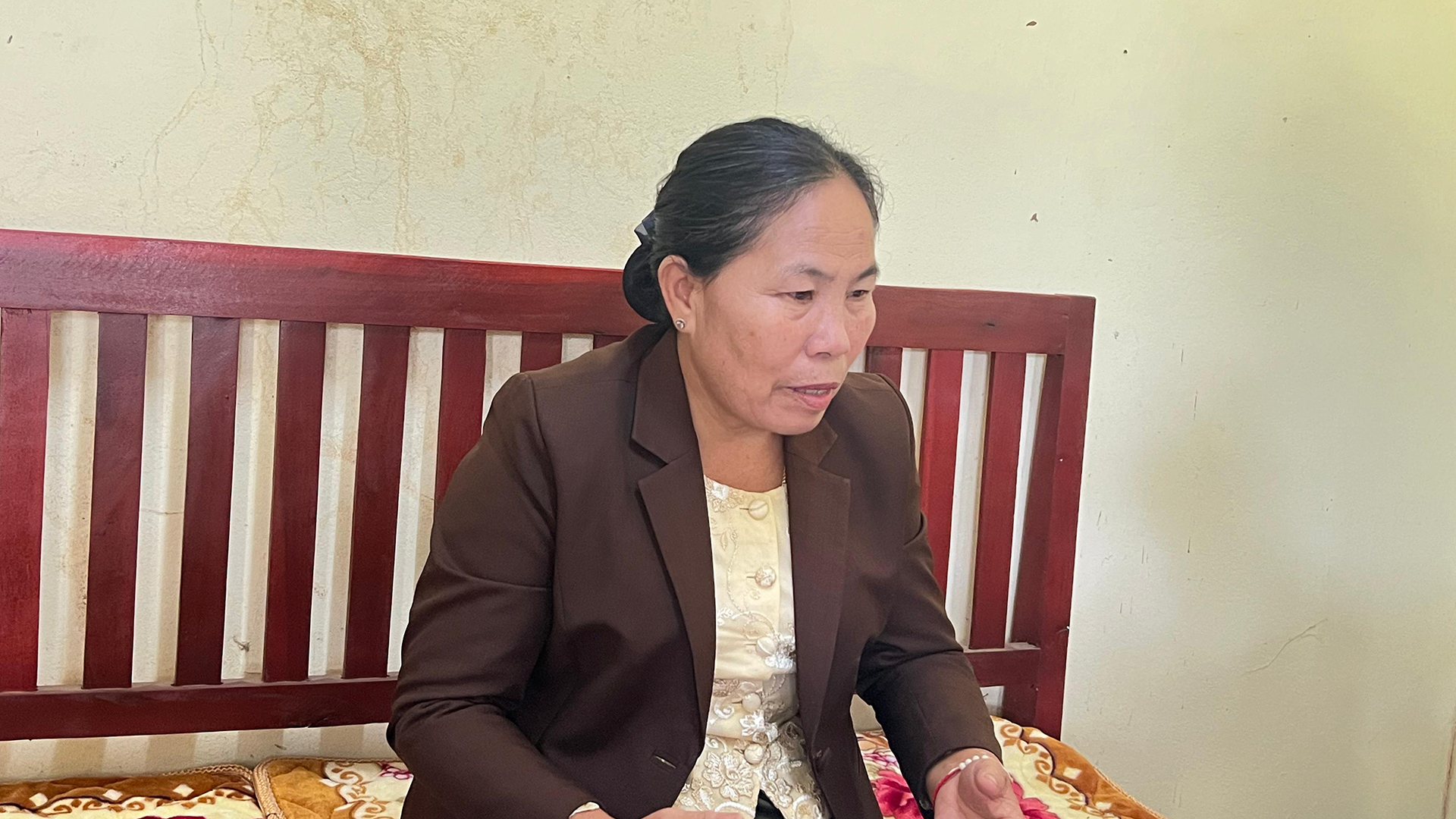lao-pdr - mitigation, peacebuilding
Mrs. Khamsone PONEKHAMDY

- Actor/Organisation
- Mrs. Khamsone PONEKHAMDY / Women's Union of Xiengkhouang Province
- Current Title/Designation
- Vice President
- Expertise/Focus Area
- Gender mainstreaming, ending violence against women, women's development, awareness raising and assistance to victims of human trafficking and various forms, including UXO works.
- Date of Interview/Research
- September 12th, 2024
- Location of Interview
- Xiengkhouang Province
- Diplomacy Track
- 1
Starting Point
The Women’s Union of Xiengkhouang (WUX) Province is a Sector\Unit under the provincial governance. It is responsible for developing and protecting the legitimate rights of women and children, women’s advancement and gender equality. Mrs. PONEKHAMDY is the Vice-President of the WUX. She is a XiengKhouang citizen. She had worked under the WUX for more than 15 years. Throughout her career, she has worked in many sectors and areas, including gender mainstreaming, violence against women, women's development, awareness raising, and assistance to victims of human trafficking in various forms, including UXO works.
“In particular, after taking responsibility and leading as well as guidance the UXO works on behalf of the WUX sector, this work has made me even more motivated and interested because it allows me to learn about UXO in depth, know how to prevent its harmful impact and attending many trainings give me the opportunity to learn related knowledge to disseminate and advertise the harmful effects of UXO to target groups more accurately and better, especially women and girls” said PONEKHAMDY.
Peace Process
The participation of women creates a gender mainstreaming platform, as well as the involvement of everyone and all parties. In terms of vision or perspective, it is seen that UXO is still a crisis that exists, challenges, hinders and is dangerous for everyone, especially women and girls. Therefore, organisations and individuals with specific knowledge and skills need to disseminate and educate the broader public about UXO. It includes the definition of UXO in general, knowledge on how to prevent and report the case of UXO in particular, as well as how to adapt, stay and live with it.
“My organisation and on behalf of the person assigned to be responsible for UXO work, particularly, I have joined with Xiengkhouang Province authority, partners and related sectors focus on UXO clearance, risk education, and victim assistance, including work involves employing demining technologies, training local teams, and empowering communities to rebuild their lives safely while mitigating the long-term impact of the UXO crisis”. By the participation as women’s voice and implementation to UXO works, PONEKHAMDY had mentioned that "my organisation and I have served as advocator for women and acted as peacemakers by contributing to the UXO field through campaigns and educational initiatives on UXO for women and girls in various settings, including communities, schools, etc". Besides, we should consider building peace for all, particularly women affected by the existing UXO issues. She and her team, including women’s groups, have been involved in various processes within the policy development framework for long-term solutions, recovery, post-impact assistance, and providing education on the harmful effects of UXO directly to women and girls.
Success Stories
The vice president highlighted that challenges tied to UXO types, engagement levels, and societal barriers hinder women's involvement in UXO work in Laos. Cluster munitions, landmines, and aerial bombs require technical expertise and meticulous handling, but women often lack access to training due to gender biases and cultural norms. As caregivers and community leaders, women play key roles in UXO education and awareness but face undervaluation and limited institutional support. Operationally, women encounter logistical and economic barriers, balancing family responsibilities with demanding, hazardous work. Community-level efforts often exclude women’s perspectives, and psychological stress from UXO-related trauma further limits their participation. Women are underrepresented at leadership and strategic levels, reducing their influence on policy and the integration of gender-sensitive approaches. Also, Cultural norms framing UXO work as unsuitable for women, coupled with limited training opportunities, psychological support, and financial incentives, exacerbate these challenges. Addressing these barriers requires targeted initiatives, such as promoting gender-sensitive policies, providing specialised training, offering economic and psychological support, and raising awareness of women’s contributions. Including women in all aspects of UXO work is vital for more inclusive and effective clearance efforts and advancing broader peacebuilding goals in Laos.
Adding the success and lessons learned based on the experiences of working closely with UXO, she has been actively involved in campaigning and raising awareness about UXO for all groups, including women, men, girls, and boys. “My efforts have included providing knowledge about UXO, conducting surveys, collecting data, assisting those affected, and creating job opportunities for individuals disabled by the effects of UXO,” said PONEKHAMDY. Through these activities, she has observed significant progress in understanding among all groups, particularly women, who now possess greater knowledge and awareness about UXO. This has empowered women’s groups and individual women to plan operations, organise UXO-related activities, and take on leadership roles effectively and progressively. Women can now serve as team leaders, medical unit leaders, campaigners, and more, demonstrating their capability to lead UXO initiatives with confidence and expertise.
-
Implementing AgencyAWPR Lao PDR
-
Lead ResearcherNou HER
-
Co-Researcher/Research Assistant(s)Bouakhamkeo KONGLYSANE, Vilaisone LATSAPHONG, Phonethidalack THIRASACK
-
Date ResearchAugust 2024-December 2024






